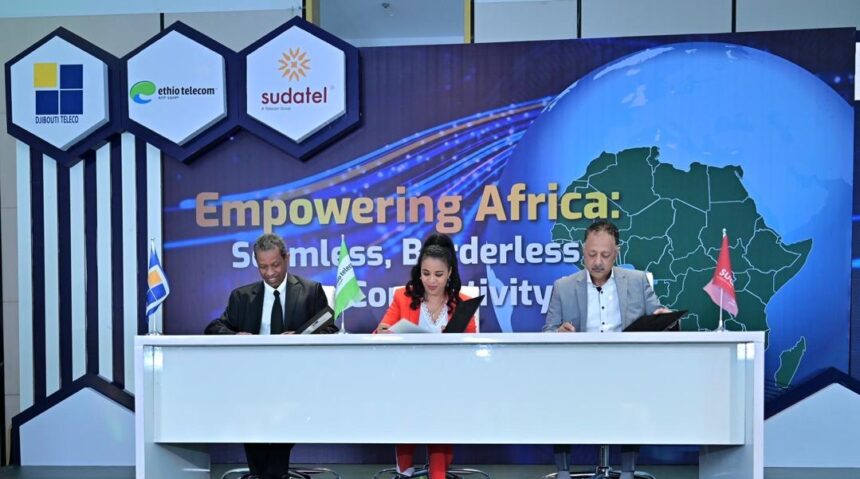Ethiopia, Djibouti, and Sudan have embarked on a partnership to enhance Africa’s digital infrastructure through the Horizon Fiber Initiative.
This collaboration, signed by Ethio Telecom, Djibouti Telecom, and Sudatel Telecom Group, aims to create a high-capacity, multi-terabit fiber optic network that will significantly improve connectivity across the region.
The initiative, which was officially unveiled in late 2017, is designed to address Africa’s persistent connectivity challenges by offering a more reliable and efficient alternative to outdated infrastructure.
The Horizon Fiber Initiative seeks to bridge the connectivity gaps in East Africa and beyond, with a robust underground fiber optic network that connects the region to international markets, including Europe and Asia. By leveraging the combined resources and technical expertise of the three telecom giants, the project aims to offer high-speed internet, reduce latency, and increase access to digital services. This will provide a major boost to e-commerce, cloud computing, remote work, and other digital sectors, thus promoting economic growth.
- Advertisement -
One of the key goals of the initiative is to reduce reliance on subsea cables, which have often been disrupted due to environmental and technical issues. The new terrestrial fiber network will not only offer a more stable and secure connection but also be easier and cheaper to maintain. This move is expected to make Africa more resilient in terms of connectivity, positioning the region as a major player in the global digital economy.
Scheduled to be operational by April 2025, the Horizon Fiber Initiative is aligned with Africa’s Digital Transformation Strategy 2030. The partnership has already sparked interest among hyperscalers, content providers, and other stakeholders eager to tap into the region’s growing digital potential.










